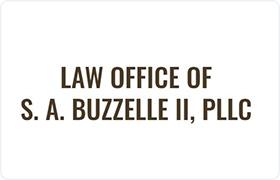Tonopah Bankruptcy & Debt Lawyer, Arizona
Sponsored Law Firm
-
 x
x

Click For More Info:
-
Law Office of S.A. Buzzelle II, PLLC
14050 N 83rd Avenue Suite 290 Peoria, AZ 85381» view mapBankruptcy & Debt Law Your Trusted Bankruptcy Attorney
If you are in need of legal services for matters relating to bankruptcy and divorce, rely on Law Office of S. A. Buzzelle II, PLLC in Peoria, AZ.
800-873-4991
Charles Frederick Van Marter
Contract, Federal, Commercial Bankruptcy, Corporate
Status: Inactive Licensed: 56 Years
Russell F Wenk
Family Law, Divorce & Family Law, Bankruptcy, Personal Injury
Status: In Good Standing
Vanessa Rae Heim
Mediation, Arbitration, Trusts, Bankruptcy
Status: In Good Standing Licensed: 13 Years
Wayne Howell
Criminal, Bankruptcy & Debt, Wrongful Death, Accident & Injury
Status: In Good Standing Licensed: 29 Years
Barry M Aylstock
Litigation, Lawsuit & Dispute, Employee Rights, Bankruptcy & Debt
Status: In Good Standing Licensed: 13 Years
Barry M Aylstock
Litigation, Lawsuit & Dispute, Employee Rights, Bankruptcy & Debt
Status: In Good Standing Licensed: 13 Years
Edwin Reed Ashton
Commercial Real Estate, Real Estate, Business, Bankruptcy & Debt
Status: In Good Standing Licensed: 11 Years
Dan R Dodds
Litigation, Family Law, Divorce & Family Law, Bankruptcy & Debt
Status: In Good Standing Licensed: 19 Years
Christine M Willis
Commercial Real Estate, Trusts, Estate, Bankruptcy & Debt
Status: In Good Standing Licensed: 11 Years
Christine Marie Willis
Real Estate, Trusts, Family Law, Bankruptcy & Debt
Status: In Good Standing Licensed: 11 Years
 Stanley A. Buzzelle II Peoria, AZ
Stanley A. Buzzelle II Peoria, AZ Practice AreasExpertise
Practice AreasExpertise
